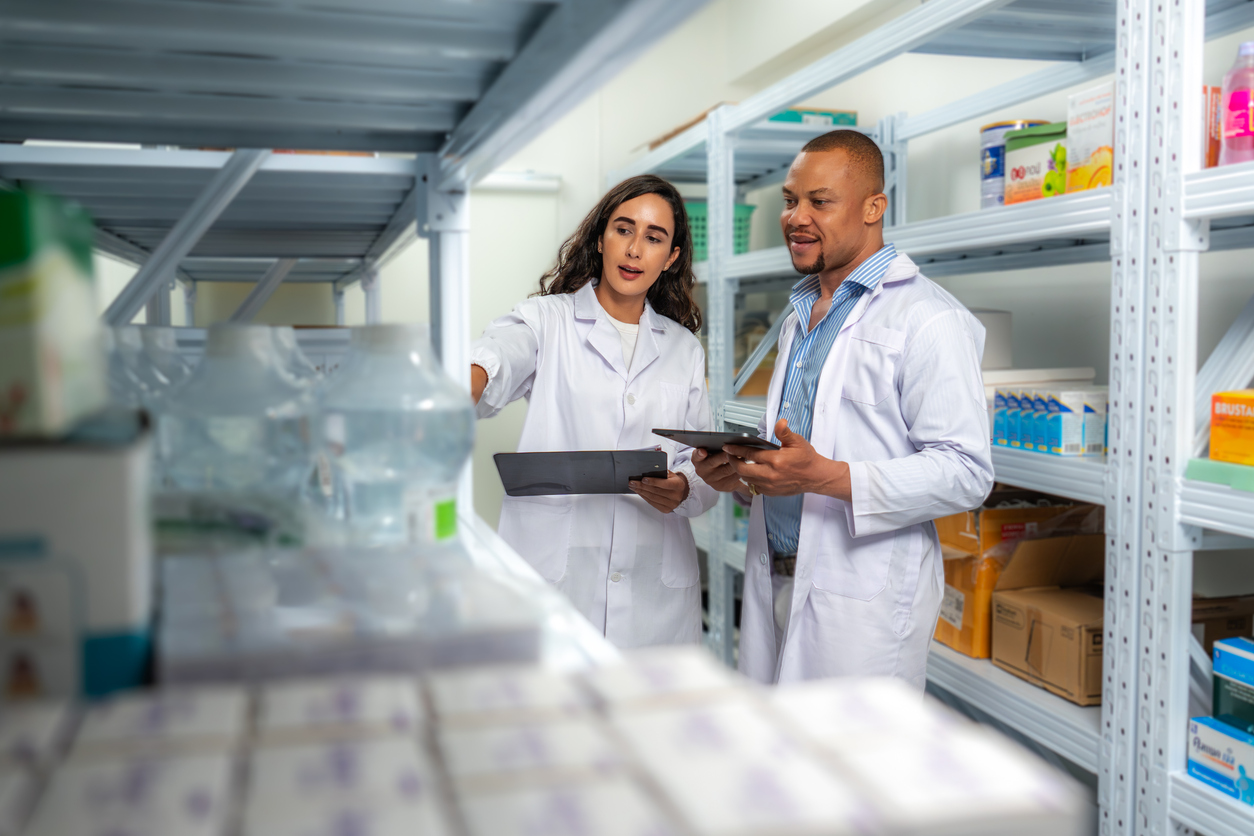Equipment and Supplies Procurement for Clinical Trials in Latin America

Clinical trials are complex and resource-intensive endeavors that require precise logistical planning, especially regarding medical equipment and supplies. Traditionally, pharmaceutical companies and study sponsors have sourced these materials from the U.S. or Europe. However, this approach is costly, time-consuming, and fraught with logistical challenges. As the demand for more efficient and effective clinical trials in Latin America grows, it’s time for sponsors to consider a new model for procurement: sourcing and storing medical equipment and supplies locally.
The Cost of Importing Equipment
The process of importing medical equipment and supplies into Latin America from the U.S. or Europe is laden with hidden costs. These include not only the direct costs of shipping and handling but also the substantial expenses associated with customs duties, taxes, regulatory compliance, and the personnel required to manage these areas. Moreover, delays at customs are common, leading to unpredictable timelines that can jeopardize study schedules.
For example, importation can be subject to complex regulatory frameworks that vary by country. These frameworks often require specific documentation, quality certifications, and approvals that add layers of bureaucracy. In some cases, equipment might be held at customs for weeks or even months, leading to project delays and increased costs for sponsors.
Additionally, export shipping back to the country of origin after the trial concludes adds another layer of expense and logistical complexity. Equipment recalls or returns due to quality issues can further exacerbate these challenges.
The Benefits of Local Procurement
- Cost Efficiency: Procuring medical equipment and supplies locally can significantly reduce direct and indirect costs. By sourcing from within the region, sponsors can avoid hefty import duties, taxes, and shipping fees and minimize personnel costs. The money saved can be redirected to other critical areas of the trial, such as patient recruitment or site support.
- Time Savings: Time is of the essence in clinical trials. Local procurement eliminates the need for international shipping and reduces the risk of delays at customs. This can shorten timelines, allowing trials to proceed more quickly and efficiently.
- Simplified Logistics: When equipment and supplies are sourced locally, the logistical chain is shortened. Fewer hands touch the products, reducing the risk of damage, miscommunication, and errors. Local vendors are also more likely to be familiar with the regulatory requirements in their own country, ensuring smoother transactions and fewer delays.
- Improved Quality Control: By partnering with local suppliers, sponsors can have more direct oversight of the quality of the equipment and supplies. This proximity allows for easier use, quicker resolution of issues, and more responsive support. Local suppliers are also likely to be more familiar with the specific needs and conditions of the Latin American market, ensuring that the products meet local standards and requirements.
- Enhanced Support and Maintenance: Local vendors can provide more immediate support and maintenance services. If equipment malfunctions or requires servicing, local suppliers can respond more quickly than distant international providers. This reduces downtime and ensures that trials can proceed without unnecessary interruptions.
Reducing Environmental Impact
The environmental benefits of local procurement should not be overlooked. International shipping contributes significantly to carbon emissions, particularly when air freight is used. By sourcing and storing equipment locally, sponsors can reduce their carbon footprint, contributing to more sustainable clinical trial practices.
The H Clinical View
The traditional model of importing medical equipment and supplies from the U.S. or Europe is becoming increasingly untenable for clinical trials in Latin America. The costs, delays, and logistical complexities associated with this approach can be avoided by adopting a local procurement model. By sourcing and storing equipment locally, sponsors can reduce costs, streamline operations, and improve the overall quality and efficiency of their trials. As the clinical trial landscape in Latin America continues to evolve, it’s time for sponsors to rethink their approach to procurement and embrace the benefits of local sourcing.
About the Author
Mitchell Parrish is the President and CEO of H Clinical. He is responsible for planning and executing the strategic vision and direction for H Clinical, along with advising the leadership team on operations, business activities, and finances. By bringing together an extensive network of dedicated professionals, an unmatched infrastructure footprint, and a profound understanding of cultural nuances, H Clinical is unmatched in its approach of delivering patient-centric clinical trials and home healthcare solutions for Latin America.
LinkedIn: https://www.linkedin.com/in/mitchellparrish/
Follow us on LinkedIn: https://www.linkedin.com/company/h-clinical/
Sources:
– International Federation of Pharmaceutical Manufacturers & Associations (IFPMA). “Clinical Trials: Advantages of Conducting Trials in Emerging Markets.” [IFPMA, 2023].
– Organization for Economic Co-operation and Development (OECD). “Customs Procedures and Clinical Trials in Latin America.” [OECD, 2022].
– Institute for Supply Management. “The Benefits of Local Sourcing in Global Supply Chains.” [ISM, 2021].
– World Health Organization (WHO). “Guidance on Medical Device Procurement and Use in Low- and Middle-Income Countries.” [WHO, 2023].

We simplify complex clinical trials across Latin America.
H Clinical simplifies complex clinical trials to meet the needs of all patients and studies. We are the leader in delivering localized, community-based, patient-centric clinical trial services and home healthcare throughout Latin America. At H Clinical, we’re bringing clinical research home.
-
TAMPA - U.S./CORPORATE HEADQUATERS
7901 4th St N, Suite 5706 St. Petersburg, FL 33702 -
MEXICO CITY – CENTRAL AMERICAN HEADQUARTERS
Av. Álvaro Obregón 121, Piso 7 Colonia Roma Norte Cuauhtémoc, Ciudad de México, C.P. 06700 -
SAO PAULO – SOUTH AMERICAN HEADQUARTERS
Rua Salviano Jose Da Silva, No 225 Bairro El Dorado, Sao Jose Dos Campos, SP, Brazil


